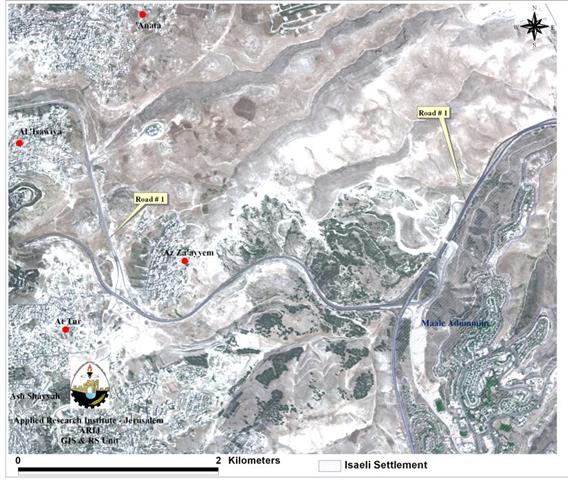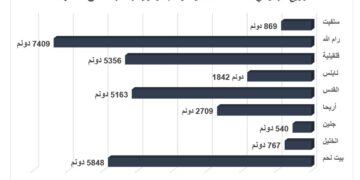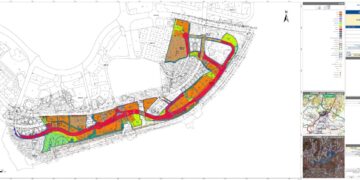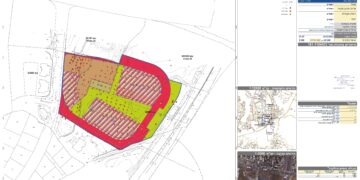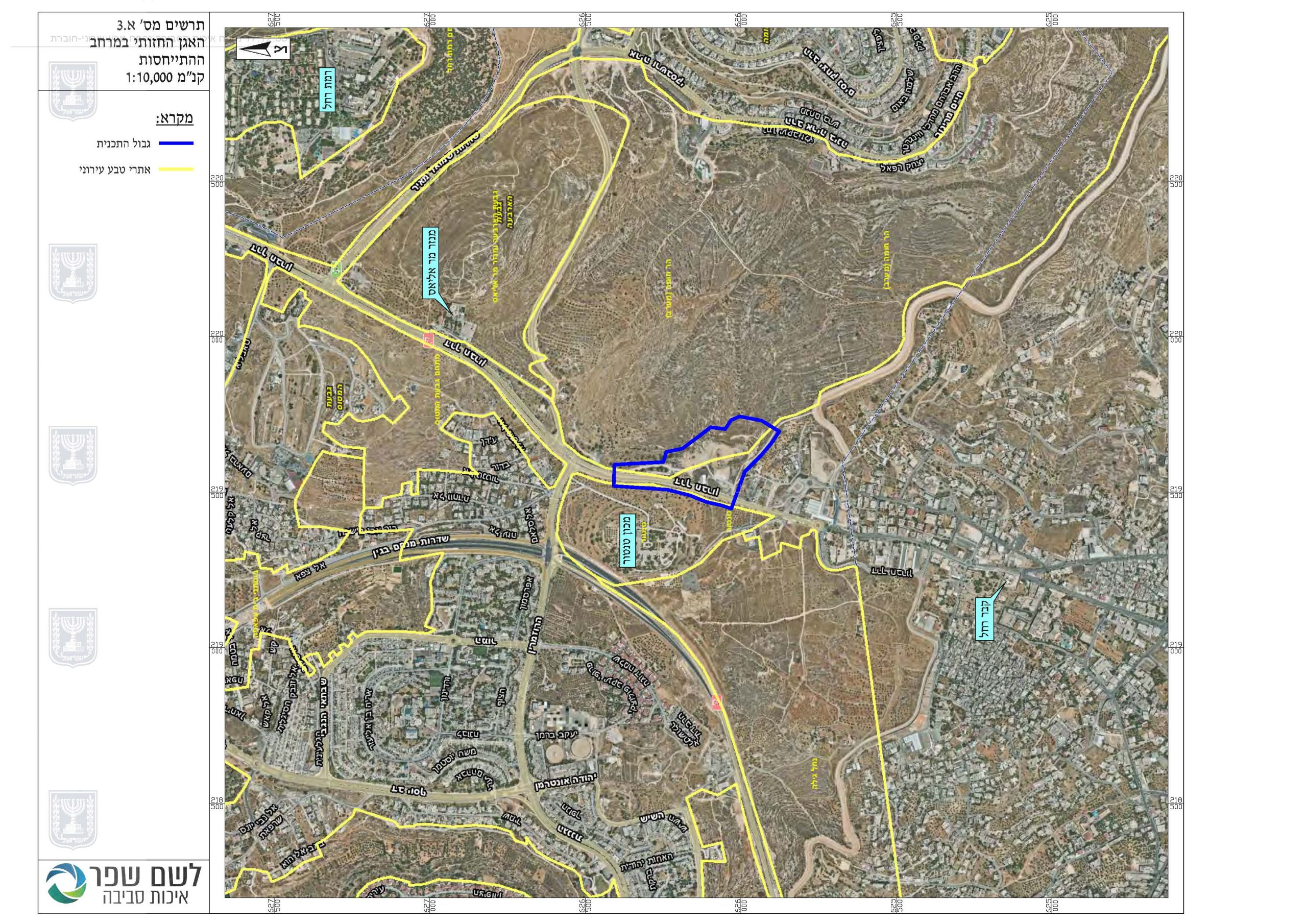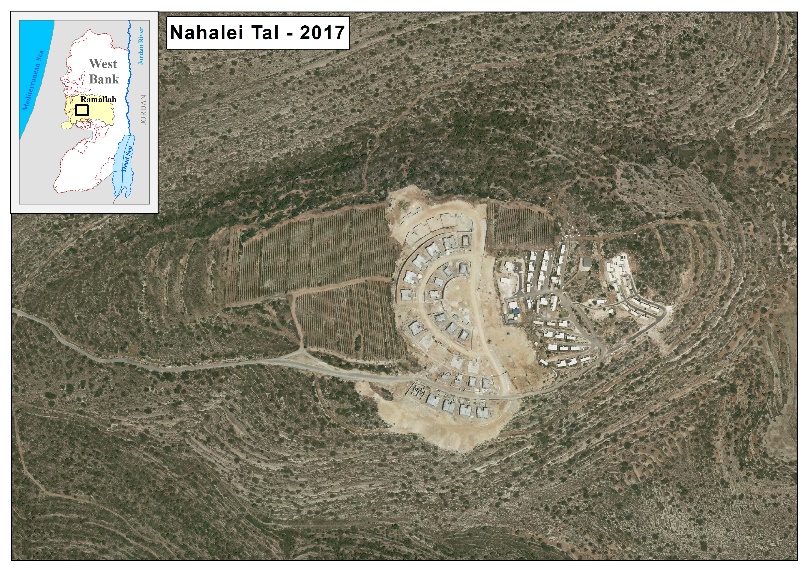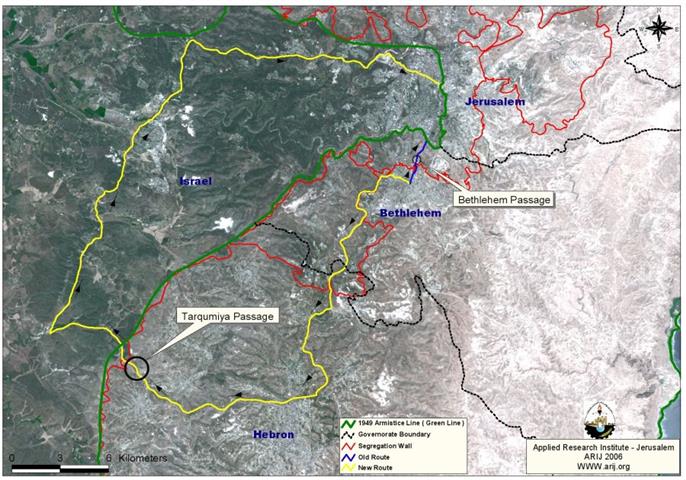Ma`ale Adumim settlement was established in 1975 by 23 Israeli families on a hilltop. It became a local council in 1979 and in 1991, the government of Israel officially declared Ma`ale Adumim 'The first city in Judea and Samaria'. By 1995 the city's population reached 20,000 and then climbed to 25,000 in only two more years. As of 2005, the estimated population of Ma'ale Adumim is 32,000 (the Israeli Central Bureau of Statistics- 2005). The settlement boasts a small college, medical centers, two large-scale malls, a country club and all necessary municipal services.
In January 2003, a three-kilometer road connecting Ma`ale Adumim westward to Jerusalem was opened, with a total cost of 320 Million NIS. The road features a 550-meter tunnel that run under the Hebrew University at Mount Scopus.
E1 Plan
As planned in the master plan for Ma'ale Adumim, the settlement area will reach 53,000 dunums, which is actually larger than Tel Aviv or Beersheba cities. Currently the city covers around 7,000 dunums. E1 is the Construction and Housing Ministryâ??s code name for a section of this master plan that has an area of12,000 dunums. This section is located west of Maâ??ale Adumim in the area between Ma'ale Adumim and the Palestinian village of Anata. The E1 plan aims at physically connecting the settlement with the eastern side of municipal Jerusalem and creating a barrier that will prevent the Palestinian development east of the city.
The E1 plan incorporates 3,500 housing units, police station, cemetery, garbage dump, Tourist Park and public areas. In case of the implementation of the E1 plan, the population in Ma'ale Adumim is projected to exceed 60,000 settlers (Benny Kashreil the Mayor of Ma`ali Adumim).
The Police Station
On the 14th of March 2006, Israel began the construction in what will be one of the West Bank's key Israeli police headquarters in the E1 area on 14 dunom land, with a total cost of $10 million, See Map 1..
The Israeli Newspaper 'Haaretz' reported on April 26th, 2006, the details of the â??exchange dealâ?? between the right-wing association 'Bukharan Community Committee' and Israel Police (represented by the national police commissioner Moshe Karadi) which was signed in July 2005. The agreement stipulated that the Committee will build the new Judea and Samaria District Police building in the E1 corridor between Jerusalem and Ma`ale Adumim. In return the Committee will receive the current police building, located in the heart of East Jerusalem neighborhood of Ras al Amud. This building was established on a piece of land that was expropriated for public needs. According to another agreement between the Bukharan Committee and Israel Land Administration 'The land shall stop serving the needs of the public' and will therefore be available for residential use. By doing that the committee will incorporate the ex-police building to the Israeli Settlement Ma`aleh Zeitim in Ras al Amud and will therefore expand the territorial control of the settlement.
Building the police station in E1 area will lead to create an extension between Ma`ale Adumim and municipal Jerusalem, facilitating and preparing for the establishment of the proposed E1 plan that includes thousands of housing units.
The Targets behind the extension of Ma'ale Adumim
The real point behind the Jerusalem-Ma'ale Adumim expansion is to cut off and isolate east Jerusalem from the West Bank. This is accomplished by surrounding the city with settlement blocs and the segregation Wall. Implementing the aforementioned agreement between the right wing association and the police will lead to the enforcement of the settler population in the heart of east Jerusalem as it would lead to the expansion of Ma`aleh Zeitim settlement, will be the trigger for constructions to take place in the E1 area, will block the Palestinian development in Jerusalem to take place eastwards and will severe the territorial contiguity in the West Bank which would be cut into at least two parts. These Israeli acts aim at outweighing the demographic composition in east Jerusalem in favor of the Jewish settlers.
Conclusion
The Israeli PM Ehud Olmert declared that his cabinet is going towards the unilateral convergence and unilateral demarcation of the borders of Israel, regardless of the Palestinian position who is calling for negotiations and for the implementation of the United Nations resolutions particularly UNSCR 194, 242 and 338. If Israel is serious about making peace with the Palestinians, the future of these areas must be left to negotiations and not determined by unilateral acts.
Related Cases :-
References:

